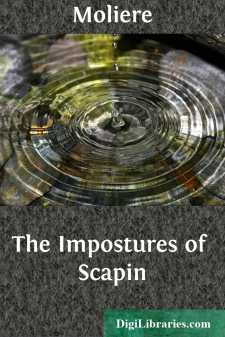Drama Books
Sort by:
by:
Bernard Shaw
PREFACE Like many other works of mine, this playlet is a piece d'occasion. In 1905 it happened that Mr Arnold Daly, who was then playing the part of Napoleon in The Man of Destiny in New York, found that whilst the play was too long to take a secondary place in the evening's performance, it was too short to suffice by itself. I therefore took advantage of four days continuous rain during a...
more...
by:
Moliere
ACT I. SCENE I.—OCTAVE, SILVESTRE. Oct. Ah! what sad news for one in love! What a hard fate to be reduced to! So, Silvestre, you have just heard at the harbour that my father is coming back? Sil. Yes. Oct. That he returns this very morning? Sil. This very morning. Oct. With the intention of marrying me? Sil. Of marrying you. Oct. To a daughter of Mr. Géronte? Sil. Of Mr. Géronte. Oct. And that this...
more...
INTRODUCTION The drama was cultivated by the Incas, and dramatic performances were enacted before them. Garcilasso de la Vega, Molina, and Salcamayhua are the authorities who received and have recorded the information given by the Amautas respecting the Inca drama. Some of these dramas, and portions of others, were preserved in the memories of members of Inca and Amauta families. The Spanish priests,...
more...
by:
John Leacock
JOHN LEACOCK Among the elusive figures of early American Drama stands John Leacock, author of "The Fall of British Tyranny," published in 1776, in Philadelphia. Even more elusive is the identification, inasmuch as his name has been spelled variously Leacock, Lacock, and Laycock. To add to the confusion, Watson's "Annals of Philadelphia," on the reminiscent word of an old resident...
more...
by:
Henrik Ibsen
ACT I (SCENE.—DR. STOCKMANN'S sitting-room. It is evening. The room is plainly but neatly appointed and furnished. In the right-hand wall are two doors; the farther leads out to the hall, the nearer to the doctor's study. In the left-hand wall, opposite the door leading to the hall, is a door leading to the other rooms occupied by the family. In the middle of the same wall stands the stove,...
more...
HOW TO BE A GOOD RADIO ACTOR The play in this book has actually been produced on the radio. Possibly you have listened to this one when you tuned in at home. The persons whose voices you heard as you listened, looked just as they did when they left their homes to go to the studio, although they were taking the parts of men and women who lived long ago and who wore costumes very different from the ones...
more...
by:
Bernard Shaw
PROLOGUE The tableau curtains are closed. An English archdeacon comes through them in a condition of extreme irritation. He speaks through the curtains to someone behind them. THE ARCHDEACON. Once for all, Ermyntrude, I cannot afford to maintain you in your present extravagance. [He goes to a flight of steps leading to the stalls and sits down disconsolately on the top step. A fashionably dressed lady...
more...
by:
John Galsworthy
ACT I SCENE I The dressing-room of CHARLES WINSOR, owner of Meldon Court, nearNewmarket; about eleven-thirty at night. The room has pale greywalls, unadorned; the curtains are drawn over a window Back LeftCentre. A bed lies along the wall, Left. An open door, Right Back,leads into LADY ADELA's bedroom; a door, Right Forward, into a longcorridor, on to which abut rooms in a row, the whole length of...
more...
by:
Richard Hovey
SCENE I.—The gate of the castle. MAIDSERVANTS (within). Open the gate! Open the gate! PORTER (within). Who is there? Why do you come and wake me up? Go out by the little gates; there are enough of them!… A MAIDSERVANT (within). We have come to wash the threshold, the gate, and the steps; open, then! open! ANOTHER MAIDSERVANT (within). There are going to be great happenings! THIRD MAIDSERVANT...
more...
by:
Euripides
Introduction[1] The Electra of Euripides has the distinction of being, perhaps, the best abused, and, one might add, not the best understood, of ancient tragedies. "A singular monument of poetical, or rather unpoetical perversity;" "the very worst of all his pieces;" are, for instance, the phrases applied to it by Schlegel. Considering that he judged it by the standards of conventional...
more...











